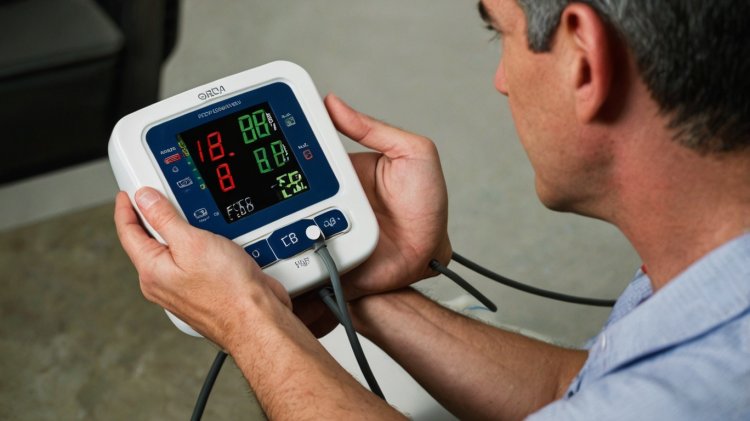Understanding Blood Pressure Readings and How to Manage Them
Learn the importance of blood pressure readings, how to interpret them, and effective strategies for managing high or low blood pressure to improve heart health.

Understanding and Managing Blood Pressure: A Comprehensive Guide
Introduction
Blood pressure is a critical indicator of your overall health, yet many people misunderstand its implications. High blood pressure, or hypertension, can lead to severe health complications like heart attacks and strokes if left unmanaged. This article provides a detailed overview of blood pressure readings, risk factors, and practical ways to maintain healthy levels.
What Do Blood Pressure Numbers Mean?
Your blood pressure is measured as two numbers:
-
Systolic Pressure (Top Number): The pressure in your arteries when your heart beats.
-
Diastolic Pressure (Bottom Number): The pressure in your arteries when your heart rests between beats.
These readings are measured in millimeters of mercury (mm Hg) and categorized as follows:
| Category | Systolic (mm Hg) | Diastolic (mm Hg) |
|---|---|---|
| Normal | Less than 120 | Less than 80 |
| Elevated | 120-129 | Less than 80 |
| Hypertension Stage 1 | 130-139 | 80-89 |
| Hypertension Stage 2 | 140 or higher | 90 or higher |
| Hypertensive Crisis | Higher than 180 | Higher than 120 |
Why Monitoring Blood Pressure Matters
High blood pressure often has no noticeable symptoms, earning it the nickname "silent killer." Regular monitoring helps:
-
Detect early signs of hypertension.
-
Prevent complications like heart disease, kidney damage, and vision loss.
-
Track the effectiveness of lifestyle changes or medications.
Risk Factors for High Blood Pressure
Certain factors increase your likelihood of developing hypertension:
-
Genetics: Family history of high blood pressure or cardiovascular disease.
-
Lifestyle Choices: Poor diet, lack of exercise, and smoking.
-
Age: Blood pressure tends to rise as you age due to stiffening arteries.
-
Other Conditions: Diabetes, high cholesterol, and obesity.
How to Maintain Healthy Blood Pressure
1. Adopt a Heart-Healthy Diet
-
Focus on fruits, vegetables, whole grains, and lean proteins.
-
Follow dietary approaches like the DASH diet, which limits salt, sugar, and unhealthy fats.
2. Exercise Regularly
-
Engage in at least 30 minutes of moderate aerobic activity most days.
-
Combine aerobic exercises like walking and cycling with strength training.
3. Limit Sodium and Alcohol Intake
-
Keep sodium consumption below 2,300 mg per day; ideally, aim for 1,500 mg.
-
Restrict alcohol to one drink per day for women and two for men.
4. Quit Smoking
-
Smoking damages blood vessels and contributes to elevated blood pressure.
5. Manage Stress
-
Practice mindfulness, yoga, or other relaxation techniques to reduce stress-induced blood pressure spikes.
6. Monitor Blood Pressure at Home
-
Use a reliable blood pressure monitor and record readings to share with your healthcare provider.
When to Seek Medical Attention
-
Hypertensive Crisis: If your blood pressure exceeds 180/120 mm Hg and is accompanied by chest pain, difficulty breathing, or vision changes, seek emergency medical help.
-
Low Blood Pressure: A reading below 90/60 mm Hg can indicate insufficient blood flow to vital organs, especially if symptoms like dizziness occur.
Conclusion
Understanding your blood pressure readings and adopting healthy habits can dramatically reduce your risk of complications. Regular checkups and proactive management empower you to take control of your heart health.
FAQs
1. What is a normal blood pressure reading? A normal reading is below 120/80 mm Hg.
2. How often should I check my blood pressure? Your healthcare provider may recommend daily checks or periodic monitoring, depending on your risk factors.
3. Can lifestyle changes replace medication? In some cases, lifestyle changes can delay or reduce the need for medication. Consult your doctor for guidance.
4. What happens during a blood pressure measurement? A cuff inflates around your arm to measure the pressure of blood flow through your arteries.
5. How does stress affect blood pressure? Chronic stress can elevate blood pressure, so managing stress is crucial for heart health.










